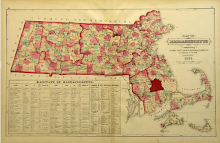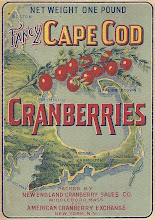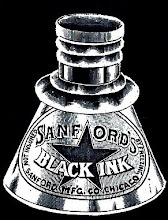 One of the most controversial men to have served in the ministry in Middleborough was the Reverend Thomas Palmer, who served as pastor of the First Congregational Church of Middleborough between 1696 and 1706, and who was, by the standards of today, an alcoholic.
One of the most controversial men to have served in the ministry in Middleborough was the Reverend Thomas Palmer, who served as pastor of the First Congregational Church of Middleborough between 1696 and 1706, and who was, by the standards of today, an alcoholic.Following the August, 1695, death of the church's first pastor Reverend Samuel Fuller, Isaac Cushman was called to the pastorate, followed by Mr. Clapp and Mr. Cutting. Eventually, in August, 1696, the church settled upon Thomas Palmer, initially engaging him to preach for three months. In October, 1696, he was voted an annual salary.
Apparently, he was not resident in Middleborough at that time, for the town voted in November, 1698, "that his goods shall be brought from Plymouth at the town's charge." Little is known of Palmer's origins, other than that he is said to have been a native of Plymouth and the brother of William Palmer of that town.
There is believed to have been some initial opposition to Palmer becoming the settled pastor, which may help explain why it was a number of years before he was finally ordained. The 1852 history of the First Church gives the likely date of Palmer's ordination as May 2, 1702, but notes that it could have been one or two years prior.
Palmer's ministry, following his settlement, was a troubled one. He is depicted as having "been a rash, headstrong man," and Thomas Weston, in fact, calls his "the most unfortunate ministry in the history of this church". Again, there was some opposition on the part of several church members to his ordination, though, once more, the reasons therefore are not explicitly stated though presumably they stem from Palmer's increasing volatility and drinking.
Little has been left on record concerning Palmer's addiction. Though alcohol was both widely available and widely valued for social and medical reasons in colonial Massachusetts, and public intoxication and over-indulgence certainly were not unknown, Palmer's habitual drunkeness went beyond community accepted norms. At the time, habtual drunkeness was considered sinful, an attitude which helps explain the later punishment meted out to Reverend Palmer, and the characterization of his affliction as an "immorality". In 1673, the influential Increase Mather of Boston had in two noteworthy sermons (later published as Wo to Drunkards) preached that "drink is in itself a good creature of God, and to be received with thankfulness, but the abuse of drink is from Satan; the wine is from God, but the Drunkard is from the Devil", an attitude which remained prevalent in communities like Middleborough for several generations.
By 1706, there was some thought of deposing Palmer from his ministry due to mounting disaffection and dissatisfaction. Though Palmer continued to be voted an annual salary, the vote on his pay for the year 1706 added the proviso that "he continue in the work of the ministry the whole year; if removed, to pay him proportionally", an inkling that his removal was at least being contemplated.
Ultimately, charges of "intemperance and excessive drinking" were levied against Palmer in late 1706. To deal with the matter, the church convened a council composed of elders and representatives of churches from neighboring towns which, after hearing the case in November, "judged it proved that he was a man addicted to drinking, etc., and thereupon disapproved of his continuance any longer in the exercise of the Evangelical Ministry there." The town soon after voted "to seek out a man for the supply of the ministry" to replace Palmer.
Palmer, however, "and some of his friends felt aggrieved by the action of the council, and they with the town and church, called a second council." This second council judged that Palmer should continue in his ministry "until the council should meet more fully." Finally, a third council of twelve churches was called in June, 1707, and advised the church to dismiss Palmer.
In accordance with this last advice, the church voted to not only dismiss Palmer from his ministry, but to suspend him from communion "for his scandalous immoralities."
Voted, by the church of Middleborough, that, in pursuance of the advice of twelve churches, in council here convened, which have declared that Mr. Thomas Palmer, the former minister and pastor, ought to be removed from the work of the Gospel ministry, and suspended from communion at the Lord's table for his scandalous immoralities, - therefore, in conformity to said advice of said council, as also upon the advice of a convention of reverend ministers at Boston, the church doth now declare that they now look on Mr. Thomas Palmer as no longer their pastor, but as deposed from the work of the ministry, and also suspended from the table of the Lord; and we withdraw from the said Mr. Palmer, and unite in our endeavors to settle the ordinances of the Gospel among us.
Palmer seems to have stopped (or been stopped from) preaching sometime in 1706, though after bringing suit against the parish, he recovered a judgement for his full salary up until the time of the council's recommendation of his dismissal. During this time, Palmer had preached in his own house which was located on East Main Street, west of the Green, "where he had a few hearers." Ultimately, the church authorized the Selectmen, December 12, 1707, to engage Reverend Peter Thacher to preach for a quarter of a year. Thacher would ultimately succeed Palmer as the settled pastor.
Following his dismissal, Palmer retired to his homestead and practiced "physick" or medicine, slowly regaining some of the respect he had lost as minister while providing for his large family, including sons Samuel and Job who were later educated for the ministry at Harvard. An anecdote relating to this period of Palmer's life has been handed down to the present and depicts a less rash and less headstrong Palmer. Following a visit to a patient in Middleborough's West Precinct (now Lakeville), Palmer borrowed the patient's horse in order to return home. Having arrived home, Palmer set the beast on its way back to Lakeville, but, so as the riderless horse would not be impounded on its return journey, Palmer allegedly attached the following lines to the animal's bridle:
Don't take me up, but let me pass
For I'm my master's faithful ass;
He Doctor Palmer lent me,
Who rode me to his house,
And gave me a pottle of oats,
And home again he sent me.
Late in life, Palmer is said to have been reconciled to the church which he once served as pastor. He "became sincerely repentent for his former course, and on November 13, 1737, the censure of the Church was taken off and he was restored to his communion by unanimous vote of the church, after full confession of his error." The implication is that Palmer, by this time, had overcome his affliction.
Thomas Palmer died June 17, 1743, at the age of 78.
Illustration:
Photograph by Alison Curtis, August 5, 2009. Republished under a Creative Commons license.






















+of+Smoky+Mountains+018.jpg)
0 comments:
Post a Comment